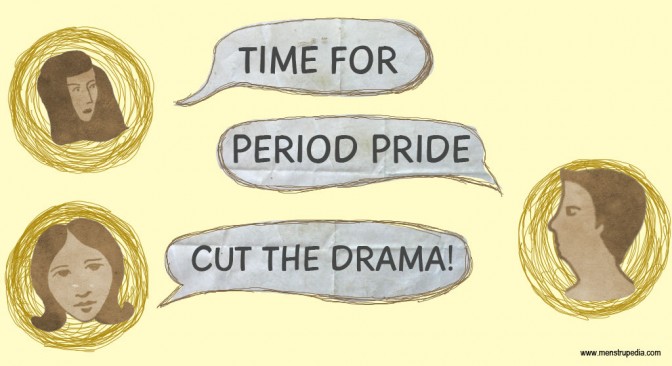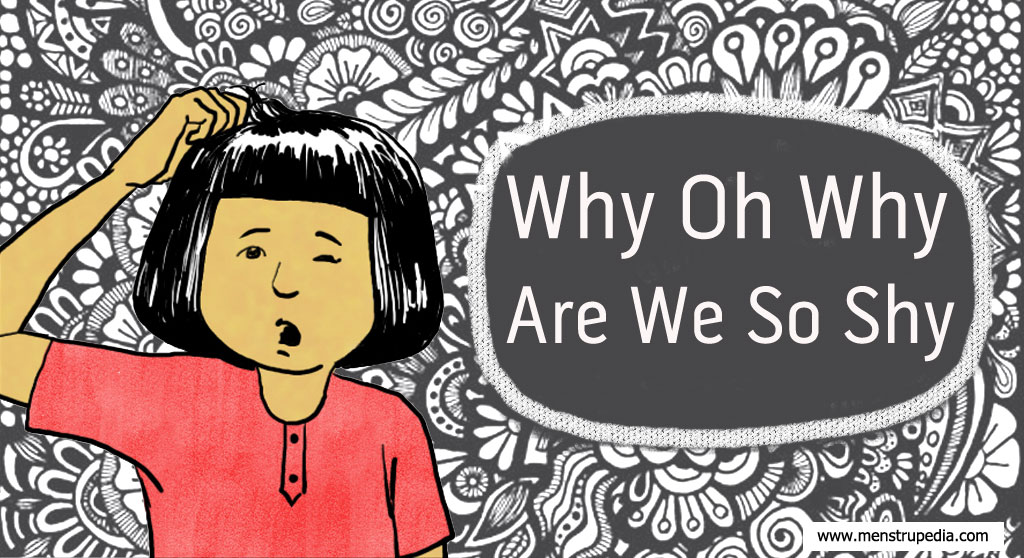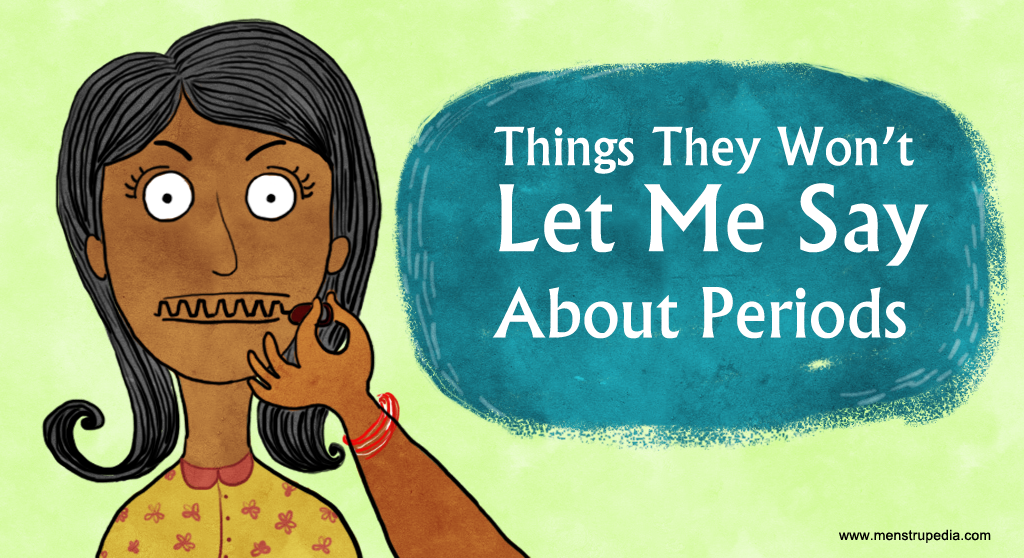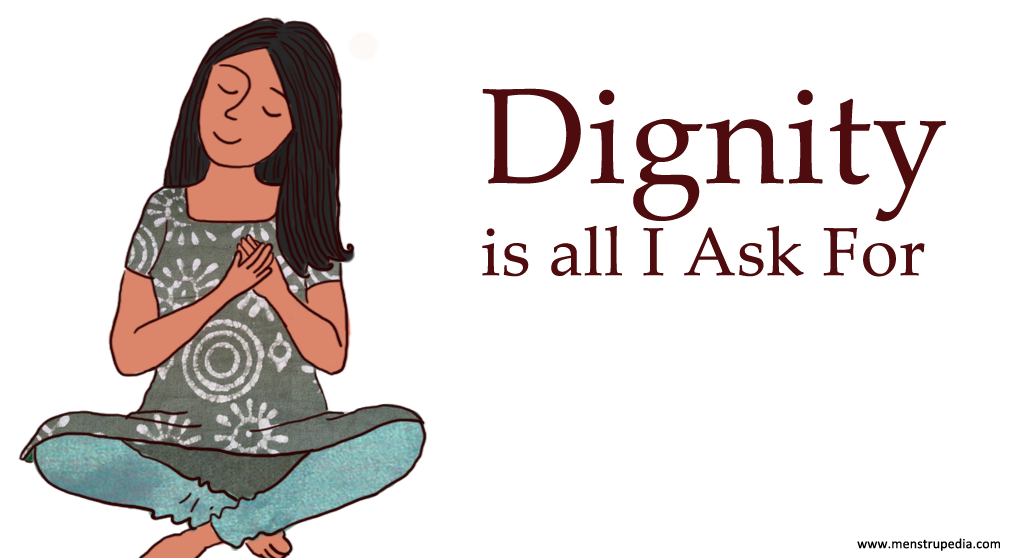I am pretty much a city girl. Sometimes it strikes me how backward attitudes can be in an era of blatant sanitary napkin advertising. The first time I encountered such backwardness of thought was in a biology class, which otherwise should have been the setting of a meaningful discourse on knowing one’s body.
For some reason, the teacher’s monologue switched instantaneously from plant biology to hormonal changes in the human body. We were just seventh graders and on the brink of a disturbing and often confusing transition. A few of our classmates had undergone elaborate rituals during the so-called ‘age attend’ function; photographs were irreverently shared and the rest of us had absolutely no idea what was going on. This teacher was a strict woman who indulged in corporal punishment. I do remember that as she spoke about coming of age, I had innocently blurted out the word “period”. She turned to me, gritting her teeth in anger and pushed her palm near my face, signaling to me to shut up. I was alarmed. Had I done something wrong? After all, we were in an all-girls convent school!
Looking back, I wonder why the woman had done that to me. After all, sex-ed was supposed to be much easier while teaching a homogeneous crowd! Why was it offensive to mention the ‘p-word’ in class? It still puzzles me how contradictory the messages displayed by those ads and the signals given to us in reality can be.
Another incident that really distorted my mind was an unfortunate encounter with a member of my family. On trying to dispose my soiled sanitary napkin, she caught me red handed. “Listen, daughter” she admonished, “We don’t have a Municipal Corporation like you do in your city. Out here, we bury the pads in the jungle, hoping that snakes don’t crawl on them.” She then ushered me to a ramshackle commode located in a creepy jungle behind the house and urged me to drop the newspaper covered package in the hole. Once this was done, she gave me a dressing down, “Listen, when we were of your age, we’d never step in the courtyard of the church when we got menses. What have you done now?” It was clever to refrain from answering and so I didn’t.
The reference to snakes brought me back to a distant memory: a conversation with one of my former domestic helpers. She hailed from a village where women were not allowed to do any work during their time of the month. They were segregated from the rest of the household and debarred from doing many things that they normally did. She spoke about two superstitious beliefs that people in her village maintained. If a snake were to crawl across a crumpled and soiled sanitary napkin, the girl would get ‘Naga Dosham’ which was some kind of a blemish upon her fortune. Similarly, if the shadow of a flying eagle or a crow were to fall on a soiled sanitary napkin, the girl would get some other ‘dosham’. All of this would affect the future of the girl and they called for religious ceremonies to reverse the curses.
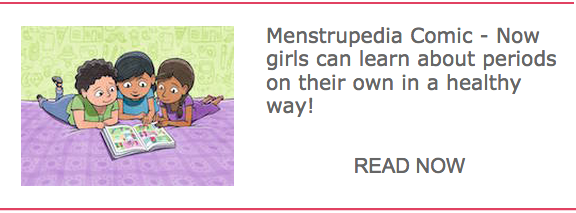
All of this clouded my mind with fear, guilt and shame. It was not my fault that I bled every month. I hadn’t done anything monumentally wrong to bring this torture upon me. Why was I going through this pain for no reason? When relatives showered me with gifts on hearing of my coming of age, I’d tell them, “Stop congratulating me. It’s not a beautiful thing to go through.” Often, I’d yell at my mother saying that I was going through this needless process simply because she wanted grandchildren. She’d smile and comfort me, muttering words of sympathy in the hope that it would assuage the torturous pain. I wanted a hysterectomy done. It was useless how all this monthly trouble made me vulnerable. How was I to explain my mood swings to any of the men in my family?
That was when hope came in the form of my father. Being Christians, we are to receive the Holy Communion whenever we confessed our sins and had to take part in the beautiful process of absolution. My father was enraged by the notion that women were considered impure during their menstrual cycles. He pushed me towards the absolution line saying “God ordained that you go through this, He didn’t call you impure. Go, stand in the line.” I received my Holy Communion that Sunday with renewed attachment towards God and a great admiration for my father. He was the first man to show me the right way. My mother also helped me develop a positive attitude towards my body and helped me overcome such taboos.
I am now a young woman, proud of her body and unafraid of anything that comes my way. It is the need of the hour to sensitize little girls about the changes in their bodies. Why must they be taught to regard themselves with shame? Unless we take pride in our body and treat it with due respect, who else will?
Meryl is a passionate writer and a student of literature. She writes poetry, short stories and two novels on Wattpad. She also runs a Facebook group called ‘Writers’ Association’.
Editor: Divya Rosaline


